We are delighted to share our final report from the Action Learning Programme. Created by The Lasting Difference, the report highlights the learning and feedback from engagement sessions held with a group of services we work alongside.
These sessions helped us to:
- Explore best practice and ways to remove barriers to support.
- Explore how partnership working can contribute to lasting change for individuals and the wider system.
- Identify ways to increase collaborative working.
- Inform how we think about our collective impact going forward.
Together we considered the challenges to collaborative working, and how we could address these. We also discussed what supports effective, impactful partnership working.
We found that our collaborative approach to commissioning brings trust, choice and flexibility to our outcomes-focused support. It also creates a network of support, knowledge and learning with Delivery Partners which, in turn, helps navigate complexity and offer holistic support.
We also found that our collaborative approach to commissioning can face systemic challenges. For example, inaccessible services, capacity challenges or confusion around national programmes of support can hinder the way we can work together.
Thanks to the insights from participants, we also learned more about what we do well and where there is room for improvement so we can address challenges to enable wider impact.
We would like to thank all those who took part in the process. Their insight and feedback was invaluable.
“This Action Learning Programme helped us consolidate what we have learned about sustaining collaborative relationships with partners. This project was an opportunity to work with our partners to explore how we can enhance our approach to working together, so we can continue supporting people to work towards their personal outcomes. It highlighted the importance of building ongoing communities of practice, and of evaluating our wider impact.”
Louise Hall, Impact and Evaluation Lead, Future Pathways
“It was so helpful to better understand Delivery Partners’ experience of working with Future Pathways. For me being relatively new to my role, the voices of everyone in the group and the learning that was shared about what works, helped to shape my own approach as partner relationships lead. The opportunities for learning and improvement can’t be overestimated.”
Nell Glen, Partner Relationships Lead, Future Pathways
“People are better supported when the different parts of the system work better together. Future Pathways have shone a light on this by convening partners and exploring how the capacity within the system can be used better. This report shows that more collaborative, trauma-informed commissioning is not only necessary, it’s clearly achievable.”
Graeme Reekie, Director, The Lasting Difference
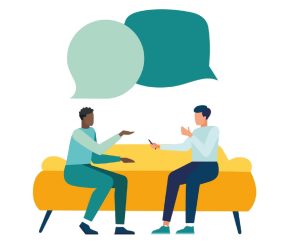
Our Impact is a short overview of the difference we make.
We recently published our latest impact report, Stepping Stones, and a summary version of the report. We now also have a short version of our impact report. It gives you key information from our report in just 8 pages.
The short version tells you what we learned about:
- What we do
- The people we support
- The impact we have on the people and services we work with
We also share the ways we would like to learn more. And how you can help us by giving feedback on our service.
Did you know that you do not need to live in Scotland to access Future Pathways’ support? Ian, who registered with Future Pathways in 2019, was sent to Australia as a child migrant. He has lived there since he was around 7 years old. Ian is also supported by Tuart Place, a West Australian support service for adults who were in any type of out-of-home care when they were children, including former child migrants.
Here, Ian shares his talent for model making.
Ian started making model windmills when he retired about 12 years ago. Since then, he has made around 2,500 of them! Ian explains, “It’s just something that I taught myself to do because I knew all about them after working in the bush and on farms”.
Ian was of the generations that depended on windmills more than most because he grew up in rural, remote areas. Years ago in Australia, these windmills were everywhere, even in the suburbs. It was the main way for many people to draw water up to the surface.
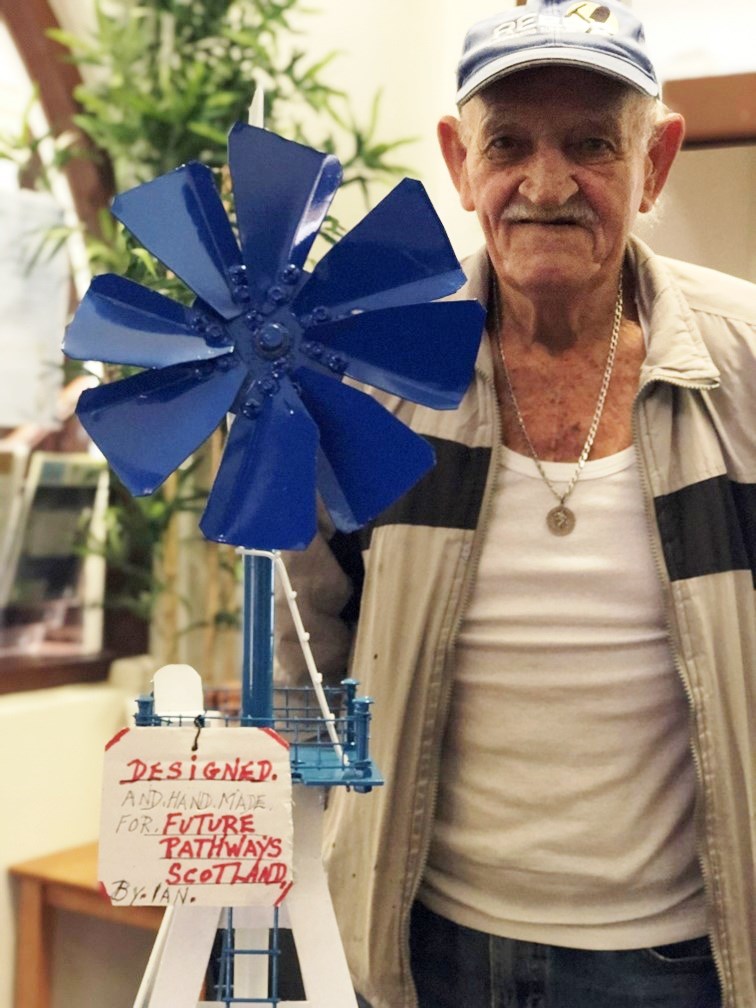
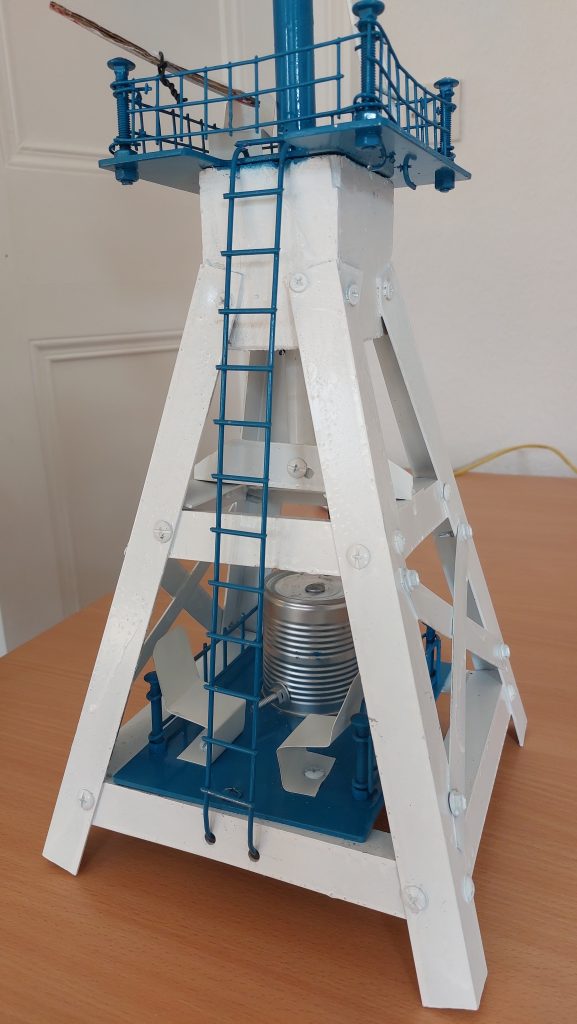
Talking about making his windmills, Ian shares:
“I get a lot of pleasure out of it. I make the frame one day then the next day do the spindle at the top. It takes me about 10 hours to make one, whatever the size. The bigger ones are easier to make because you can get your hand in. My design is good too because I put extra things in, like chairs on each landing. Some of the windmills are quite small, others are as tall as a person. When it comes to the end of making one, I’m so happy.”
Ian, who recently turned 80 but says he feels about 40, makes windmills in all different colours. He has used football colours, Irish colours, aboriginal colours (red, black and yellow), and others are silver, like windmills in the bush. Ian made one in yellow and blue which was auctioned off to raise money for Ukraine. Another he made as tall as a door which raised $1500 for kids. He even presented one to a member of the Australian parliament who came to Tuart Place and took it back to Canberra with them.
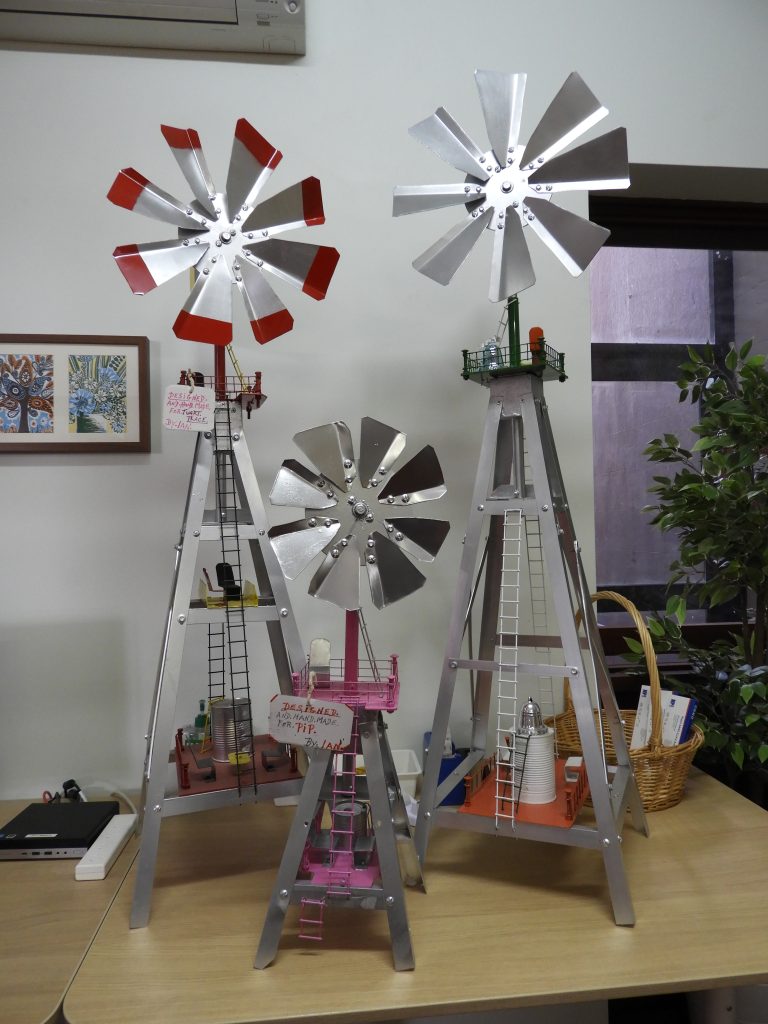
Ian’s talents extend to other models too:
“I’ve also made a model of Sydney Harbour Bridge about 3 meters long, and a beautiful dolls house on wheels. I even made the furniture to go into it and battery-operated lights. That one got raffled at Tuart Place. Everyone who sees my models, they fall in love with them.”
And now Ian’s windmills have even travelled half-way around the world to Scotland after he very kindly made one for Future Pathways, and we love it! As Ian put it, “it’s a little bit of Ian and a little bit of Australia, in the middle of Scotland.”
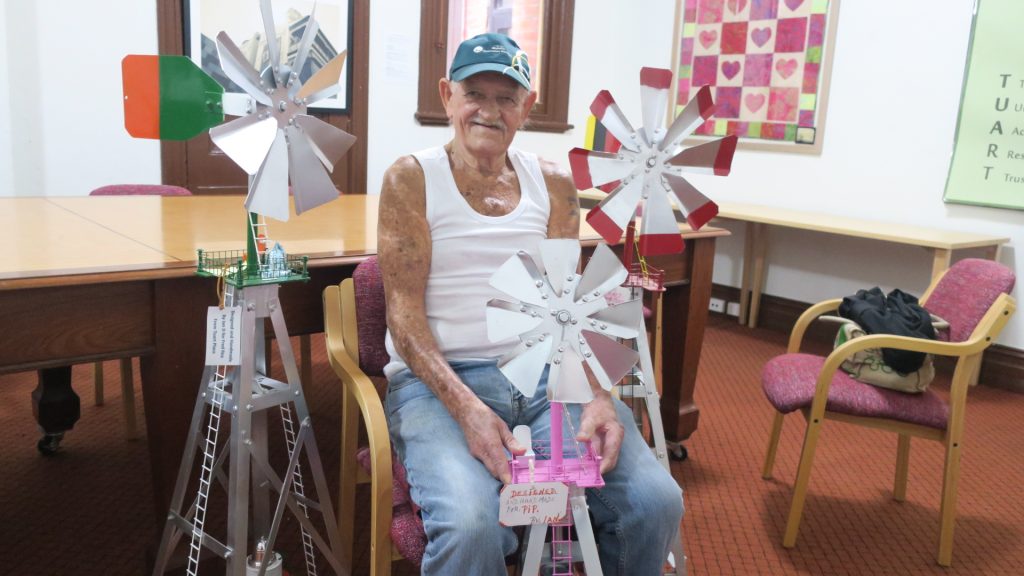
Growing stronger together
Tuart Place is a support service for adults in Western Australia who were in any kind of out-of-home care when they were children. Funded by the state government, it is based in the city of Freemantle, just south of Perth. Its motto is ‘growing stronger together’, and it provides a lot of different services, including counselling, social activities, informal support groups, training courses and records tracing
www.tuartplace.org
Flora Henderson, Alliance Manager, explores how working together as an Alliance can strengthen the service we deliver.
Delivered by the In Care Survivors Alliance, Future Pathways was set up to offer something tangibly different to people who experienced childhood abuse or neglect in Scottish care settings. The aim was to directly reduce the inequalities that come from such experiences.
Our vision was for people to have fuller, healthier and more independent lives.
And that this could be achieved by focusing on what was most important to someone and by providing tailored support according to the personal outcomes or goals they wished to progress.
It is known that the impact of childhood abuse is individual and wide ranging. No two people were alike in their experiences, therefore a personal response was vital. Having consulted with people about what was important to them, the challenge was to respond to a wide range of needs in a personal way. It was hard to see how a single organisation could respond.
Early evidence highlighted the importance of this: by the time our first scoping report was completed, it was clear that people usually had multiple needs and few supports. Indeed, we found that people had shown great resilience in the face of services that did not always understand or respond to their needs. More of the same would not do.
In an alliance, each partner is required to act in a certain way to achieve a common goal.
The Scottish Government identified that alliancing had the potential to offer something new and different. The initial test was whether alliancing would enable partner relationships that allowed for a flexible response to individuals. Done well, it is a culture of innovation and learning, with all partners sharing risk as well as opportunities, never losing focus of the person’s needs and requirements.
In Care Survivors Alliance brings together four partners:
While each organisation has specific qualities, experience or remit that we can draw on, we also know that working together enables more effective support for those who access Future Pathways.
Each partner can share learning, knowledge and expertise to strengthen the service we deliver.
Our collaborative approach also extends to our network of Delivery Partners and beyond. These are the organisations, services and individuals from which we commission support. Over time, we have developed and strengthened our network and we now work with around 62 active Delivery Partners. This commissioning model also offers the flexibility to respond to individual need, offer real choice to people and to truly tailor our support. For example, our network includes organisations and practitioners working across counselling, therapy and record searches, as well as in life coaching, or creative writing services.
Our hope was that alliancing would lead us to a style of working that fostered inclusivity and learning.
There is a sense that a consistent priority placed on relationships and learning. There are examples of support being offered in new and different ways, improving the response to individuals.
We have more to learn about the unique contribution that Future Pathways and our partners make in understanding what is most important to someone and convening support around them accordingly.
Collaboration is essential to any alliance model. This is clearly the case for Future Pathways: our aims can only be achieved through the joint working and shared values of our four Alliance partners. We are committed to building relationships, learning from each other and reducing barriers to support where we find them.
Alex has been working with us for about a year. We helped him to write a book – and he’s already planning the next one.
Alex is in his early 70s, and had never written a book before. However, when the idea came up during a call with his Support Coordinator, he was interested. Alex says, “I knew I had enough stuff to say, but I just wasn’t sure I was ready at that time.”
Alex decided to go for it, and the book was recently printed. It’s called ‘Priests Don’t Dae That’. It’s about Alex’s life, mainly his childhood in the 1960s. He wrote it with the help of Lea Taylor from the Book Whisperers. The Book Whisperers help people to write books.
The writing and editing process worked well. Alex explains: “I’d put pen to paper, and then I would meet up with Lea and give her my pages. She would then put it all together for me. And she designed the book cover for me too.”
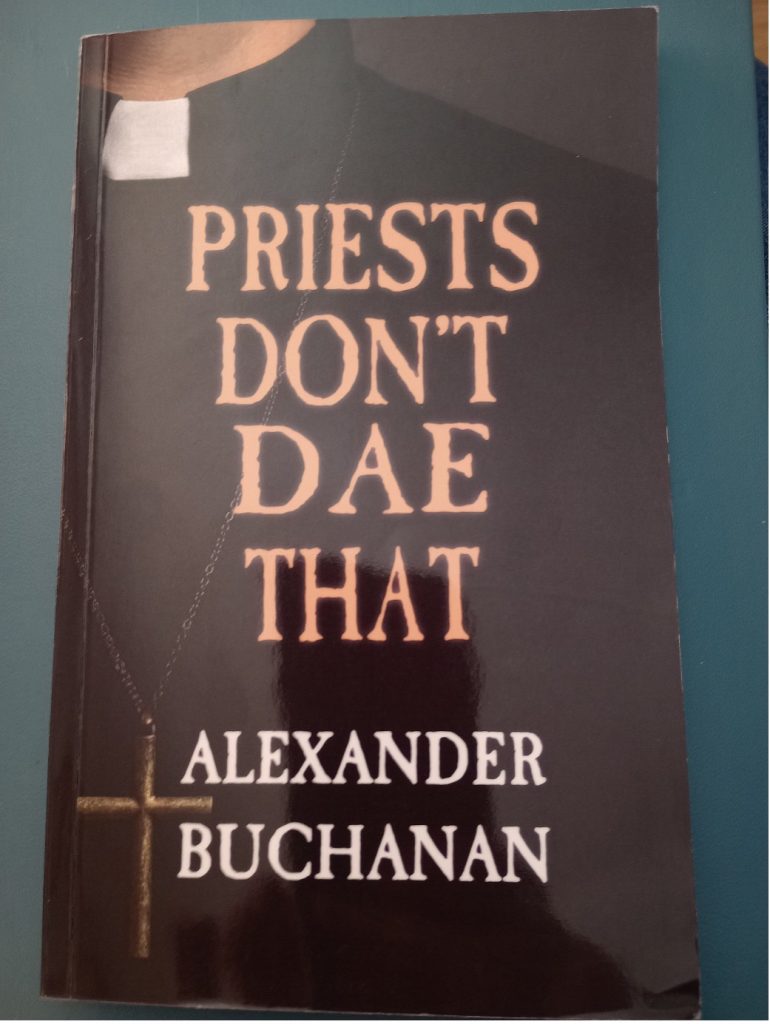
It took Alex just a month or two to write the book: “Once I started writing, it came quite easily.”
Lea really enjoyed the process too. She told us “It was a joy working with Alex on so many fronts.” Lea told us how dedicated Alex was to writing his book. She said that “best of all was witnessing such a wonderful change in him as the work and his confidence progressed.
His story was fascinating, and I’m delighted to have helped Alex produce this powerful piece of work.”
The people at the Book Whisperers believe that just the process of writing a book can make you feel better about things, and that was true for Alex: “It was a great experience. I wish that I got it all out sooner, honestly, but I’m glad I have done it now, and I’m now more level-headed. I’m very thankful to Future Pathways and to the Book Whisperers.”
And what’s next for Alex? “I might write another couple!”

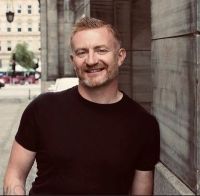
Dan Ross is a transformational life coach, helping people to move towards their goals using the resources and relationships they already have. As Dan says:
“My work is all about working in the here and now, and making a plan for the future.”
He has developed a programme called “Ignite Your Inner Warrior.” The programme is about helping people to discover their inner potential.
Previously Dan was a counsellor, working in crisis settings. This gave him a wealth of experience of working with people in challenging life circumstances, which he is able to apply in his current role as a life coach.
The process
Dan works with people from a wide range of backgrounds and life experiences, and feels that it is important to treat everyone equally. Central to Dan’s work is developing a mutual, trusting relationship with people so that they can work effectively together.
The process starts with a free session before starting to work together. During this session Dan meets the person he will be working with, and together they explore if life coaching is right for them. They also talk about how they will work together. Dan finds this helps people feel less anxious about it.
During sessions, Dan works with people to become more aware of their limiting beliefs. A limiting belief is a state of mind which can block someone from moving towards their goals. Sometimes people are not aware of their limiting beliefs.
By helping people see these blocks, Dan helps people transform their beliefs about themselves into more positive ones. Dan encourages people to identify values they wish to develop and embody. He says:
“The values you choose should be the opposite of your limiting beliefs. For example, if you struggle with people pleasing, one of your values could be assertiveness.”
Dan supports people to master their values and make them part of their identity and everyday life. He helps them to reframe their thinking and find new perspectives on challenges. This can help people to feel more able to work through self-criticism, and to feel more in control of their life.
Dan also runs a free mindset group for people he works with. People in this group attend events and workshops, and take part in challenges like cold water exposure, climbing mountains, or even free-falling.
Working with Future Pathways
Dan heard about Future Pathways when a Support Coordinator, Andrew, called him to enquire about his services. Andrew was working with someone who wanted to explore how life coaching could help him achieve his goal of becoming a motivational speaker. Dan describes his experience of working with Future Pathways:
“It has been first class. The Support Coordinators have been personable and positive. I have had no communication issues at all. Any questions I had were quickly answered.”
Dan believes that life coaching is most impactful when people are ready to commit to change in their life, and he feels that everyone Future Pathways has connected him with has been ready to work together.
He also encourages the people he works with to stay connected with Future Pathways, and to share how they are doing with their Support Coordinator. This helps Dan work alongside Future Pathways to help people achieve their goals.
Impact
Many people who Dan has worked with have achieved things that might have seemed impossible before their work together. For example, some people have started businesses or overcome fears to complete personal challenges. Some people tell Dan that his coaching has changed their life. It’s clearly a very successful partnership, which we hope will continue and develop for many years to come.
Find out more about Dan’s work at www.danrossmotivation.co.uk
We work with Matter of Focus to help us evaluate the difference we make and see how we can improve. We spoke to Ailsa Cook, Co-Founder and Director of Matter of Focus.
Can you tell us a bit about Matter of Focus and the work you do?
Matter of Focus is a purpose-led company and B Corp based in Edinburgh set up by myself and co-founder Sarah Morton in 2017. We support public and third sector organisations to understand, evaluate and track the difference they make.
Sarah and my paths had crossed several times during our long and established careers in academia, where we had both kept one foot firmly planted in the real world of influencing policy and practice. We both really knew that organisations needed better tools to evaluate their own impact, tools that would empower them to learn in real time thereby deepening their understanding of their work, which is what’s required to really make the best difference possible. So that is what we set out to provide.
Matter of Focus offers a practical and meaningful approach to understanding and evaluating change, along with expert support, and we have developed our own software OutNav to hold the approach and help organisations embed ongoing self-evaluation, learning and improvement.
How have you worked with Future Pathways so far?
We’ve had the pleasure of working alongside Future Pathways since 2018. They were aware of my expertise around evaluating personal outcomes and approached Matter of Focus when they were looking for support with their evaluation and research, which they knew was an important part of their work to build the evidence base for a new and pioneering service.
Initially, we produced a scoping report to really understand the service; looking at the context in which Future Pathways was working, understanding how they make a difference and their progress towards that. This involved speaking to people that used the service as well as staff and other partners. Since then, we provided ongoing support and supervision for Future Pathways’ researcher as they were using OutNav to embed evaluation into their work.
In 2020 we helped Future Pathways to produce their own impact evaluation, which was a substantial piece of work that mapped out how the service made a difference and brought together lots of feedback, data and evidence from across their work.
Recently we’ve been working very closely with the Impact and Evaluation Lead to supplement the information they had available to evaluate the impact of Future Pathways. This included running focus groups and workshops and doing some additional analysis. We see ourselves as a learning partner for Future Pathways offering a bit of additional input at key points.
We recently worked together to develop the Stepping Stones report. What can you tell us about the importance of collaboration when evaluating impact?
We believe it’s important for organisations to own their own evaluation: that they are clear about what they need to know and what their data is telling them and, critically, that people in the organisation are really involved in making sense of that data because that’s what leads to meaningful and efficient learning and improvement. However, we recognise that evaluating complex relational services is incredibly challenging. We have been able to bring specific expertise, guidance and an approach to evaluating complex interventions. With Stepping Stones, we were also bringing objectivity: people could tell us things they might not tell Future Pathways directly and we can see the service with a bit of distance and fresh perspective. Coupling this external lens with Future Pathways’ ongoing self-evaluation over quite some time is really powerful.
What did we learn together about Future Pathways’ impact in Stepping Stones?
This evaluation has cemented understanding of how Future Pathways makes a difference. We can be confident that their genuinely trauma-informed and relational approach to care coordination works and makes a difference to people as, building on previous evaluations, the evidence is now clear.
Additionally, the Stepping Stones report has strengthened understanding about Future Pathways’ role within the wider system and the impact they have had by working closely with Delivery Partners to make sure they’re able to support people effectively. They really understand what they need to do next to shape the system.
Future Pathways’ commitment to understanding the difference they make and their focus on embedding and sharing ongoing learning is inspirational and exemplary. We’re proud of our learning partnership.
Our latest Quarterly Report is now available to view. It covers our work from January to March 2023. It shows what we’ve learnt, and includes key stats and feedback from those who access Future Pathways.
This quarter:
28 people started working with a Support Coordinator.
More people heard about Future Pathways through word of mouth than from anywhere else.
259 people accessed support from our delivery partners.
We worked with 70 active delivery partners.
People told us they wanted to improve their mental health, their living environments and develop new skill.
People told us working with Future Pathways made a positive difference to their lives. For example, by giving them sense of pride in themselves or their achievements, and ways of coping.
People told us where they heard about Future Pathways
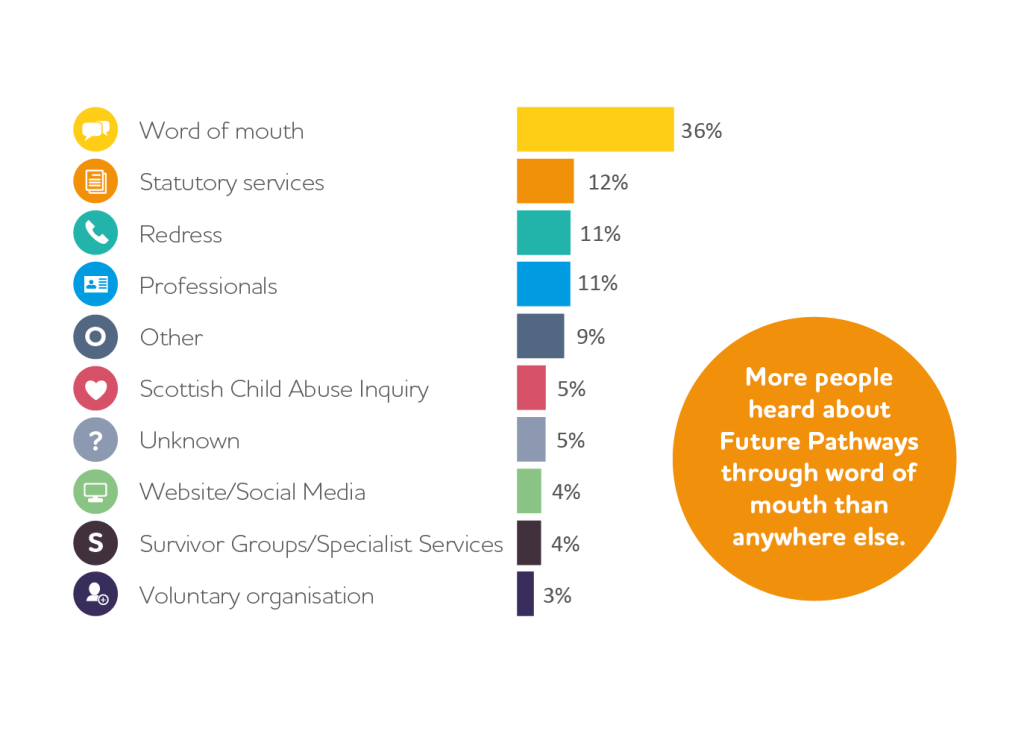
Future Pathways linked people with a range of delivery partners this quarter
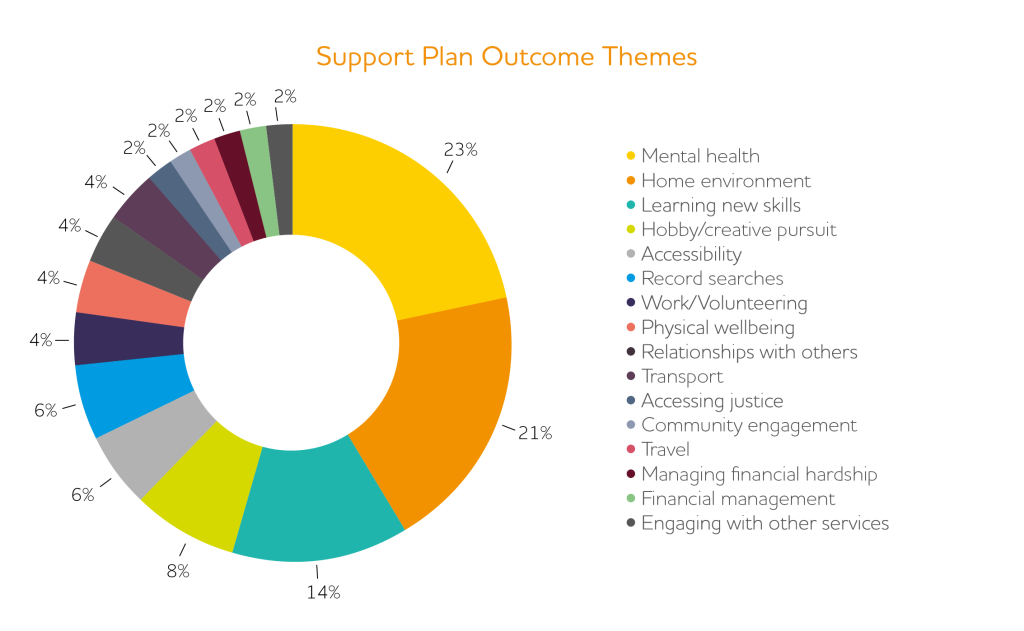
People told us what they hoped to gain from working with our service
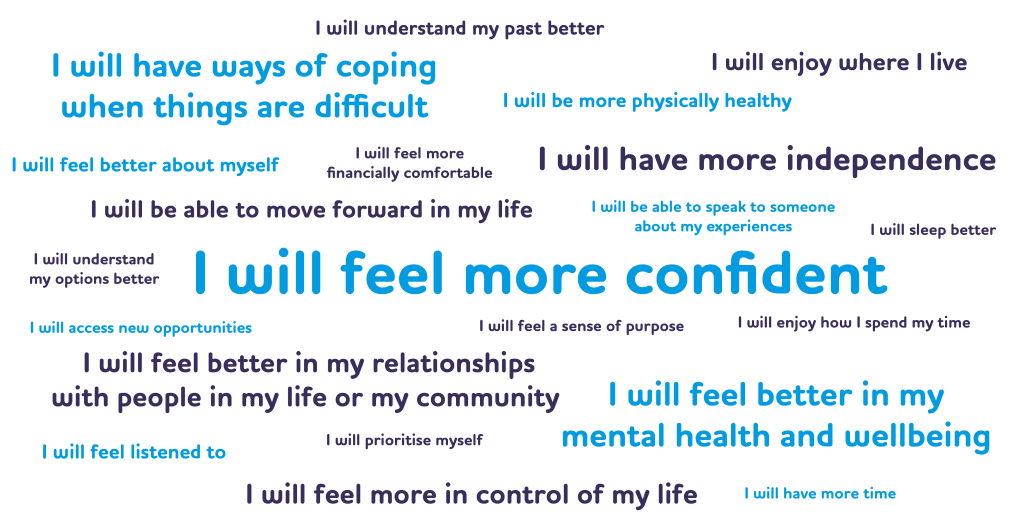
People told us about the most impactful support they accessed through Future Pathways
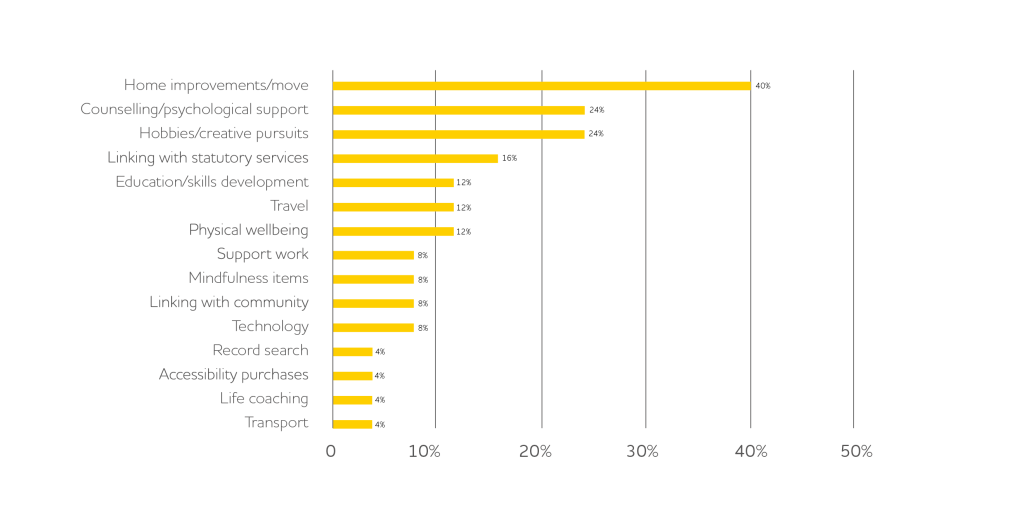
Our full report features further infographics, feedback and a breakdown of our financial spend. Read the full report.
Rikki heard about Future Pathways in 2017, after contributing to the Scottish Child Abuse Inquiry. He started working with a Support Coordinator called Lara.
Rikki had been struggling with his mental health and particularly with flashbacks. Lara put Rikki in contact with the Anchor, the Glasgow Psychological Trauma Service. Through the Anchor, Rikki accessed EMDR therapy. This is a type of therapy which can help people process trauma. Rikki found that this experience helped him to look at past experiences from his present perspective, as an adult. Together Rikki and Lara also explored how complimentary therapies, such as reiki and mindfulness techniques, could benefit his mental health. This helped Rikki find useful approaches to cope with flashbacks.
“I used to see one wee thing on the TV and I was back there in my mind. Now I have the techniques so that the flashbacks don’t stay with me.”
Volunteering has always been important to Rikki. For example, during the COVID-19 pandemic, Rikki volunteered to meet and greet people at his local hospital. After accessing support from Future Pathways, Rikki wanted to do something to support Future Pathways.
“You looked after me. You have got me to this stage. Now I want to give something back. I want to share what Future Pathways has done for me.”
Lara encouraged Rikki to get involved with Making Pathways Together. Through this project, people who have accessed support from Future Pathways gave us feedback to help us improve the service. Rikki also got involved in our survivors’ voice group, Voices for a Better Future. This group brings together people who are registered with Future Pathways with the aim of improving services for other survivors.
Currently, Rikki and other group members are working with Future Pathways to develop peer support within our service. Although at first Rikki felt hesitant to get involved in the group, being part of Voices for a Better Future has helped him feel more confident and helped Rikki move past feelings of shame and embarrassment that have affected his past relationships.
“It has given me a lot of confidence. My life experiences are what I bring to the table.”
Being part of this group has also helped him develop relationships with people who also want to make a positive change.
“We became closer as a group. The respect is there. […] It is all about helping others […] We laugh together. Sometimes there’s a bit of emotion. People want to be heard. I can’t advise but I can sit there and listen.”
Overall, being involved with Voices for a Better Future has been a very fulfilling experience for Rikki.
“Just being at the meetings, I know I am there for the right reason, to make people realise that they have a voice […] I feel passionate about Voices for a Better Future. There are a few tears, but we are doing it to better people’s lives.”
Maggie registered with Future Pathways in 2020. She had watched a programme on television about child abuse and this invoked deep feelings of anger. Shortly afterwards, she heard about the Scottish Child Abuse Inquiry on the news and called the Inquiry helpline number.
She was motivated to call the Inquiry by her relationship with her son. Because of her past traumas and the shame she felt, Maggie felt she had not been able to be the mother that she wanted to be. For example, Maggie struggled to play games or show physical affection with her son as a child because this was not modelled to her when she was a child. This was devastating to her. Maggie also contacted the Inquiry because she felt strongly that justice was needed, and it was important to her to be heard.
“I needed someone to listen. That was important to me because nobody ever listened.”
The Inquiry referred Maggie to Future Pathways and Maggie started working with a Support Coordinator called Lisa. Maggie met Lisa for the first time in person at a cafe, along with Maggie’s son. This was a big step for Maggie who hadn’t spoken to anyone apart from her son in a long time. Maggie recognised some people she knew at the café, and this was triggering. Lisa understood and they found somewhere Maggie felt comfortable. Maggie instantly felt comfortable with Lisa. She felt that there were no barriers up and it was as though they had known each other for years.
“I’ve never smiled so much in my life. She listened. She never once interrupted me. She would ask me [questions].”
It took time for Maggie to trust Future Pathways because previously she had negative experiences with other services which had made her feel poorly informed, dismissed, or dropped which made her feel as though she had done something wrong. Lisa understood how important it was to be consistent.
“Not once did she let me down. […] She has held up her end of the bargain. I felt I had somebody who I could trust.”
As time went on, Lisa and Maggie developed a trusting relationship and Maggie opened up about the anger she felt. Lisa always responded with compassion and never assumed what Maggie would want or need. Maggie appreciates that Lisa always checks in to make sure she understands what Maggie tells her, and to make sure Maggie was okay after an emotional phone call.
“She has been my backbone.”
Maggie enjoyed art when she was younger and was interested in finding a creative outlet. Maggie had been attending a local pottery class and had built up a good relationship with the tutor. However, this became unavailable locally which felt like a real set-back. Lisa supported Maggie to recover after this and to explore other options.
Maggie heard about a local studio delivering classes. Future Pathways used discretionary funding to enrol Maggie in a jewellery class. When this wasn’t the right fit, due to Maggie’s mobility challenges, Future Pathways supported Maggie to explore alternatives and Maggie engaged in classes in ceramics, mosaics, and stained-glass art. Nobody at the studio knew Maggie or her past which meant she felt able start with a fresh slate.
Lisa also supported Maggie to start working with a psychologist, Amy. Amy helped Maggie to develop coping skills to manage her triggers. Strategies included taking breaks from her phone and expressing boundaries in her relationships with others. Maggie felt believed by Amy and Lisa, which made this relationship work.
“I was allowed to talk, and somebody listened, and somebody believed me. That meant the world to me. Somebody had my back. Somebody was looking out for me. That was the most important thing. I would have known if they didn’t believe me
Now, Maggie continues to create and is currently making a piece for Future Pathways. Her mosaic incorporates an image of a yellow brick road to symbolise her hopes for the future. Maggie has a passion for poetry. Her poetry is inspired by Scotland’s slave-trade history, and she also writes about her personal experiences which she finds cathartic. Going forward, Maggie would like to write her life story and recently she wrote a poem about applying for Redress. Maggie feels it is important to give survivors opportunities to tell their stories. Maggie feels more able to stand up for herself and uphold her boundaries. She feels able to help and support others and has more faith in herself.
“I’m finding me, I’ve got a voice now, I’ve got courage. […] They gave me the strength. They let me find me. They gave me control back.”
While Maggie finds it distressing that abuse still happens in care settings, she feels motivated to contribute to positive change. She feels it is important for services to learn from mistakes and to be transparent and honest when making commitments. Maggie feels that Future Pathways should provide support for the children of survivors and address the inter-generational impact of trauma. This is informed by Maggie’s experiences with her son with whom she has now developed a positive relationship.
Maggie feels that Future Pathways’ support has been lifechanging. After struggling with her mental health in the past, she now feels that there is someone in her life who can help.
